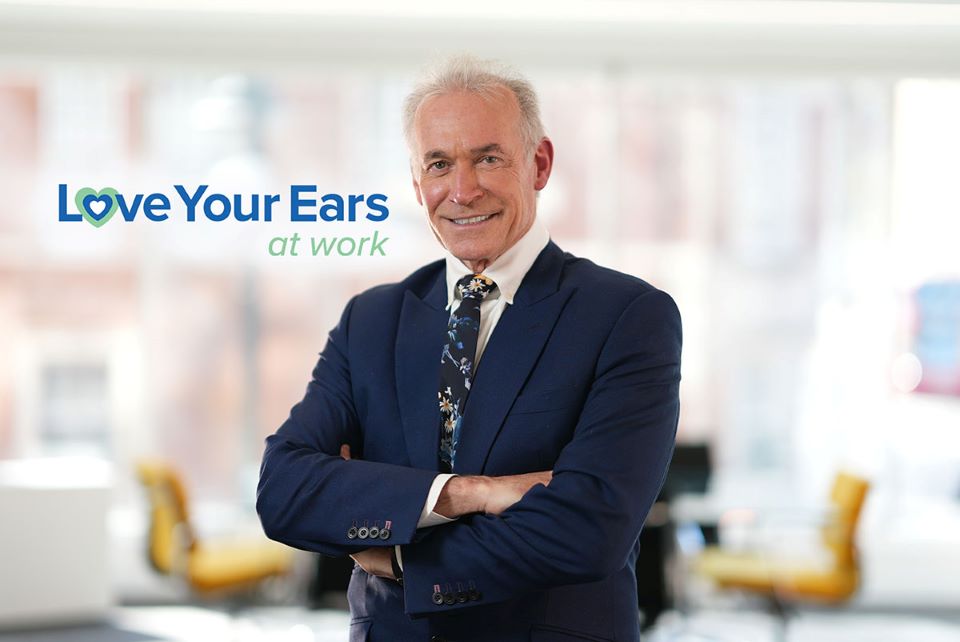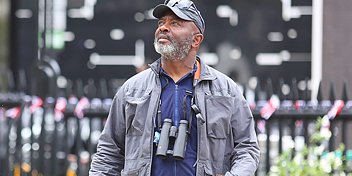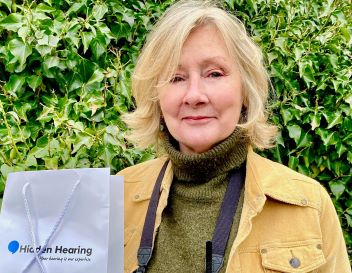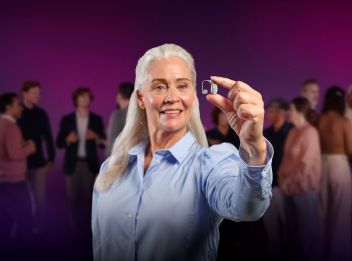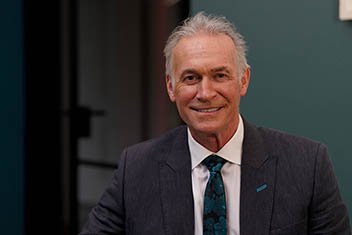Our current campaign to 'Love Your Ears' is gaining nationwide media attention. Read on to find out more in case you’ve missed it…
We are campaigning for employers to help tackle the hearing at work taboo as research reveals pretending to hear is common, and 1 in 5 UK workers admit to being held back.
We’re urging employers to take hearing loss more seriously as a well-being issue in the workplace. New research reveals that:
- 1 in 5 employed adults, aged 18-65+, say hearing has held them back in the workplace.
- 61% of people with hearing loss in the UK admit to pretending to hear a conversation with a colleague or employer due to a reluctance to talk about their hearing; caused for many by embarrassment, fear of looking unprofessional or being seen as ‘not up to the job’.
- Over 8 million UK workers are estimated to be at risk of hearing loss, and experts are warning about an emerging risk of hearing loss amongst office workers, connected to headphone use.
- Hearing loss in the labour force is much more widespread than many employers realise, affecting 1 in 8 people of working age.

GP and Medical Broadcaster Dr Hilary Jones, who supports our campaign to Love Your Ears, says:
“We need people across the UK to start talking about hearing loss at work. It’s a workplace taboo that needs addressing. Struggling and pretending to hear at work is a common coping strategy and this can have serious implications for workplace stress and staff mental health and well-being.”
The good news is that this situation can be reversed through better understanding of the practical things we can all do to support colleagues with hearing loss and deafness.
Dr Hilary has helped to demonstrate how everyday situations can either help or hinder people with a hearing issue, through a filmed ‘Hearing at Work Experiment’, involving two volunteer office workers fitted with sound-cancelling hearing plugs. You can watch the short hearing loss experiment here.
Better Hearing at Work
The filmed scenarios are just two of the common office challenges identified by ‘Hearing Loss in the Workplace’ research we conducted for our Love Your Ears campaign.
“Small changes can make a big difference to helping to improve how we all hear in the workplace,” says Dr Hilary, “and if you notice a change in your hearing, please don’t ignore it. Get your hearing tested and talk about it at work.”
You can also download our free guide to better hearing at work which provides tips for employees and employers on how to address the challenges that hearing loss can cause in the workplace.
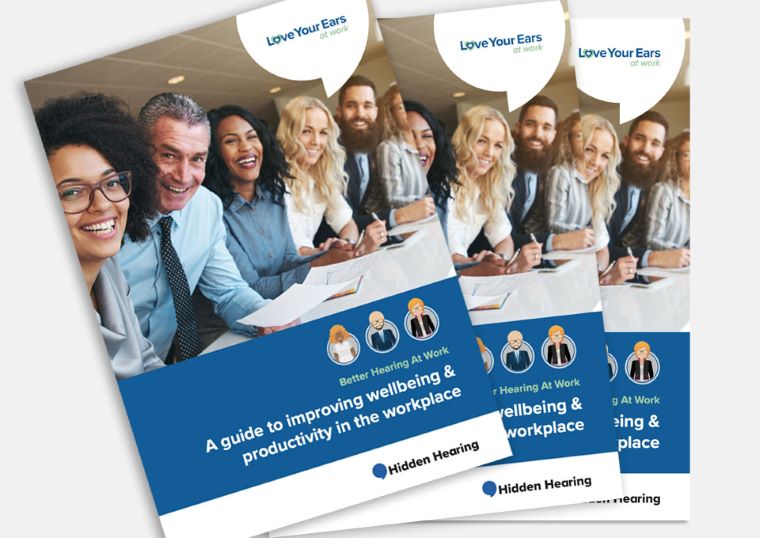
Owning your hearing loss – and loving it!
Actress and comedian – and supporter of the Love Your Ears campaign – Samantha Baines, who was diagnosed with hearing loss aged 29, has recently written a book, Living with hearing loss: A guide to owning it and loving it, which includes a chapter dedicated to hearing loss in the workplace. In a recent interview with BBC Radio 4, she recalls trying to hide her hearing loss at work.
“I remember going to auditions and not wearing hearing aids. A director would be sitting behind a screen, giving me directions, and I wouldn’t be able to see their mouth to lip-read. I would just nod along.”

But Samantha’s attitude towards hearing loss has changed, and she no longer shies away from it. “I recently filmed a sitcom. Saying ‘I wear a hearing aid, was such a relief!”
From hiding hearing loss to receiving an MBE
Award-winning poet and author Raymond Antrobus, who was born deaf, tells a similar story. “I left school with an internalised idea that if I disclosed my deafness on my CV, then I’d be less employable, I’d have less value. So I didn’t do that. I’d show up to interviews without my hearing aids so they wouldn’t know, which led to sometimes-comical, sometimes-disastrous situations. I couldn’t keep any job.”
However, Raymond has forged a remarkable career as a poet, reading his work at Glastonbury Festival and the Paralympics homecoming ceremony at Wembley Arena, as well as having poems on the GCSE English Literature syllabus. Much of his poetry focuses on his experience of being deaf, and he was appointed an MBE in 2021 for his services to literature.
How early hearing loss detection can help you…

Dr Dalia Tsimpida
Lecturer in Public Health at the University of Liverpool, Dr Dalia Tsimpida, who is currently researching the impact of hearing loss on people’s performance and behaviour at work says, “Research has shown that early detection of hearing loss through routine assessments can not only promote better hearing, it can help to protect our wider health and well-being, as well as the thinking, reasoning and remembering skills we need for a productive working life.”

We’re offering employers additional support by helping their staff to actively engage with their hearing health, through a range of free digital assets, a free downloadable e-guide, face-to-face talks about hearing at work (fronted by professionals with hearing loss), as well as work-based hearing tests and self-care advice. For more information on how to access hearing health support for your business, please email lye@hiddenhearing.co.uk.
Sources:
[1] ‘Better Hearing At Work – a guide to improving wellbeing and productivity in the workplace’ published by Hidden Hearing for the LoveYourEars campaign, April 2023
[2] OnePoll ‘Keeping Up At Work’ survey of 2,000 UK employed adults, March 2023.
[3] Hidden Hearing ‘Hearing Loss in the Workplace’ survey of 2,945 people with hearing loss from across the UK (March 2023) and 1:1 focus group interviews (February 2023).

